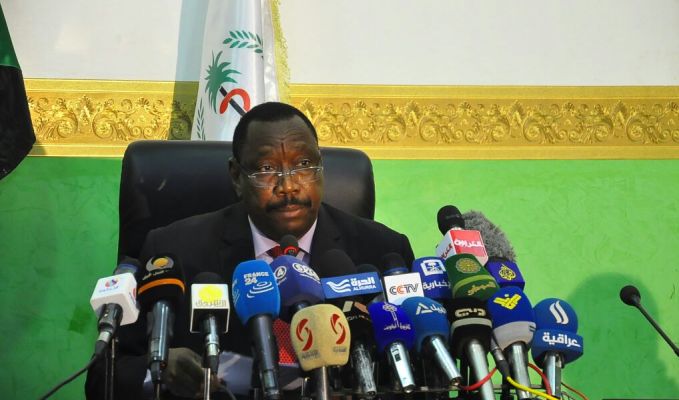Sudanese government reverses decision to increase drug price

November 25, 2016 (KHARTOUM) – Sudanese President Omer al-Bashir has sacked the secretary general of the Sudan Pharmacy Council (SPC) and cancelled a new list of drug price issued by the latter, said Sudan’s Health Minister on Friday.
Earlier this month, CBoS announced it will no longer provide US dollar for drug importation at rate of 7,5 Sudanese pounds (SDG) forcing pharmaceutical companies to buy the dollar from the black market at 17,5 pounds.
Following the CBoS’s decision, the SPC issued a new list showing the drug price has drastically increased by 100 to 300 percent.
The decision stirred a large wave of protests across Sudan. Also, some two hundred private pharmacies in Khartoum went on partial strike and closed their doors from 09:00 am to 05:00 pm last week in protest against the government’s move.
At an emergency press conference on Friday, Sudan’s Health Minister Bahar Idris Abu Garda said the secretary general of the SPC, Mohamed Hassan Imam, made enough mistakes to get him stripped of his position, saying the list of drug price he hastily issued contains some medicines that the government continues to subsidize.
He stressed that the list of drug price issued by Imam has been cancelled, pointing that a committee was formed to issue a new list as soon as possible.
However, Abu Garda acknowledged that there would be a “reasonable” increase in drug price, saying it wouldn’t include the life-saving drugs for blood pressure, diabetes, Parkinson’s disease, psychiatric diseases and hemophilia.
Abu Garda pointed that a new SCP’s secretary general will be appointed soon, saying the council would monitor the new drug prices in coordination with the states’ governments and pharmacy administrations.
He denied his government’s inability to subsidies medicines, saying they currently provide 113 million Sudanese pounds (SDG) for the free medical treatment and will be increased to 150 million pounds next year.
The minister stressed the government will continue to subsidies 40% of the medical insurance drugs, saying they will also provide significant sums of money for about 50% of the drugs.
He added that the government covers medical insurance of 3,8 million families, pointing that 750,000 new families will be added to the insurance programme in the coming budget.
It is noteworthy that the government, earlier this month, has also lifted fuel subsidies and increased electricity price in a bid to stop the surge in inflation and control the fall of Sudanese pound in the black market.
Sudan’s economy was hit hard since the southern part of the country declared independence in July 2011, taking with it about 75% of the country’s oil output.
OPPOSITION DOUBTS GOVERNMENT DECISION
Meanwhile, several opposition parties and political activists have described the government move as “tactical retreat” saying it is a proactive decision which aims to abort calls for civil disobedience.
Various opposition groups and political activists have called for a national civil disobedience from 27 to 29 November in response to the government decision to scrap fuel, electricity and drug subsidy.
In a statement extended to Sudan Tribune Friday, Sudanese Congress Party (SCoP) spokesperson Mohamed Hassan Arabi said the government decision includes a very few number of medicines while the subsidy would be lifted from the majority of drugs.
He said the government decision to sack SCP’s secretary general was meant to curb the growing popular resistance while maintaining the increase in price of the majority of drugs.
SCoP added the solution for the entire country’s problems could only be reached by overthrowing the regime through the popular uprising, calling on the Sudanese people to escalate resistance until achieving the civil disobedience.
For its part, the independent Central Committee for the Sudanese Pharmacists (CCSP) said they decided to work to cancel the CBoS’s decision on drug importation “altogether”.
In a statement extended to Sudan Tribune Friday, the CCSP described the government move to reverse decision to increase drug price as “deceptive”, saying they will launch a campaign to educate the pharmacists and the public about the true government’s intentions.
CCSP also pointed out that they discussed various options to protest against the unjust move to increase drug price including staging a strike to force the government to reverse its decision.
(ST)
